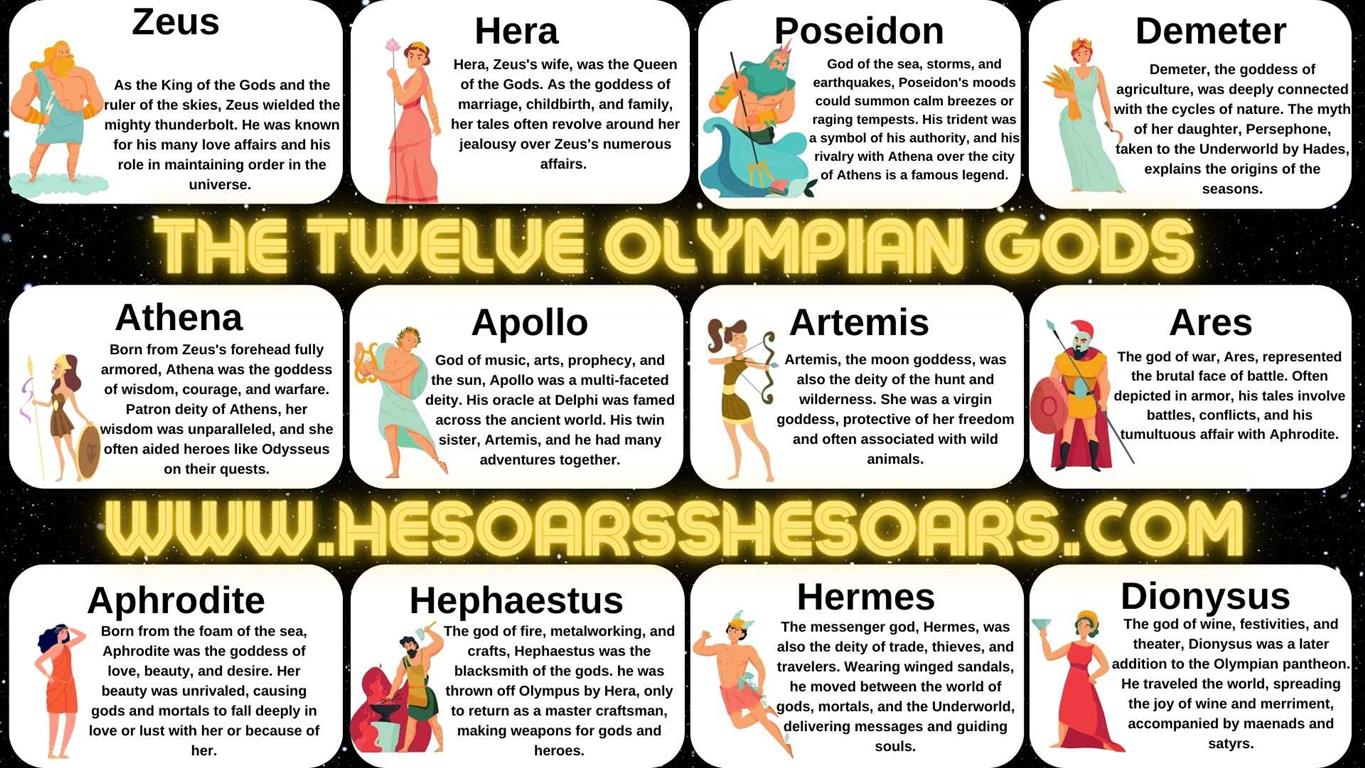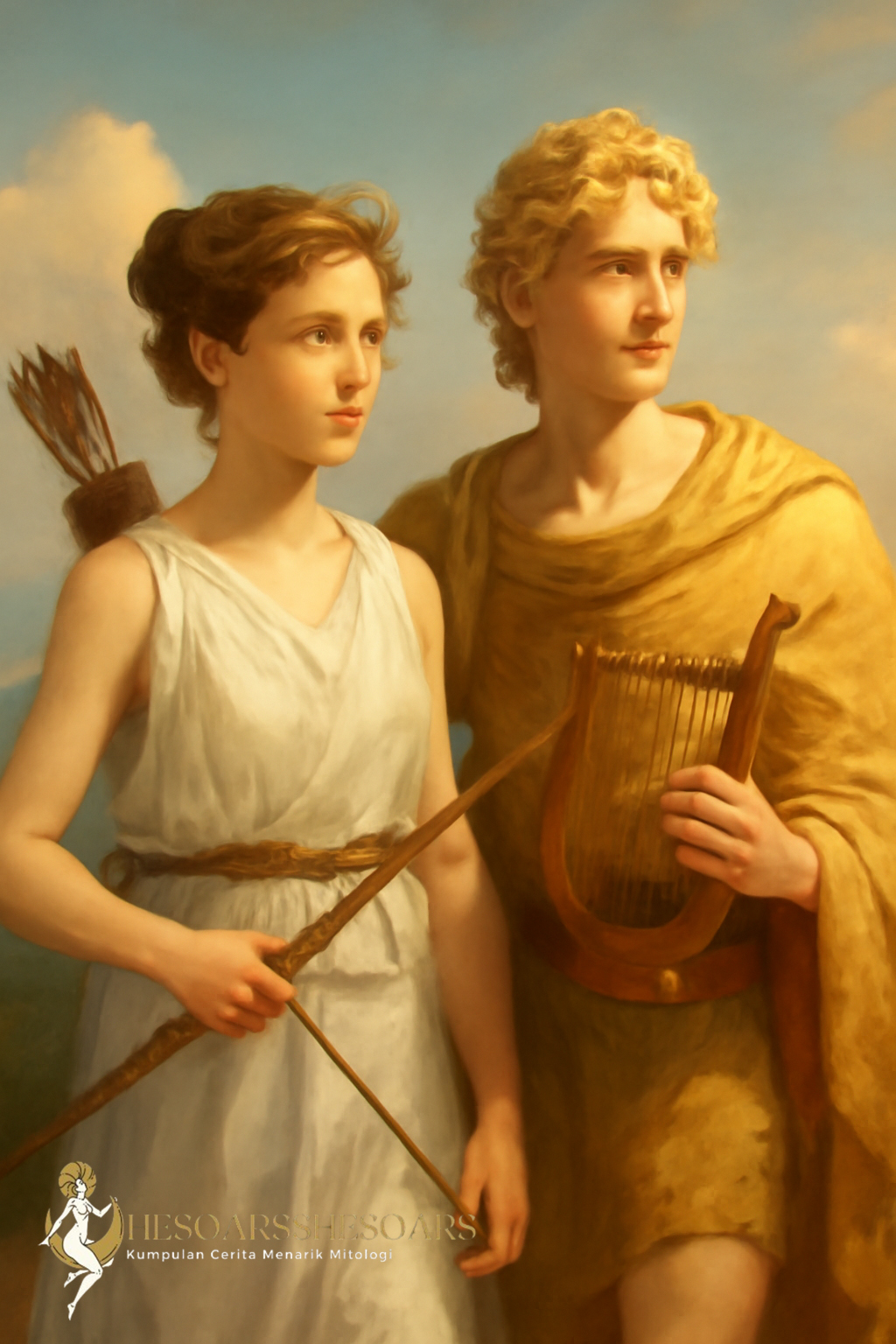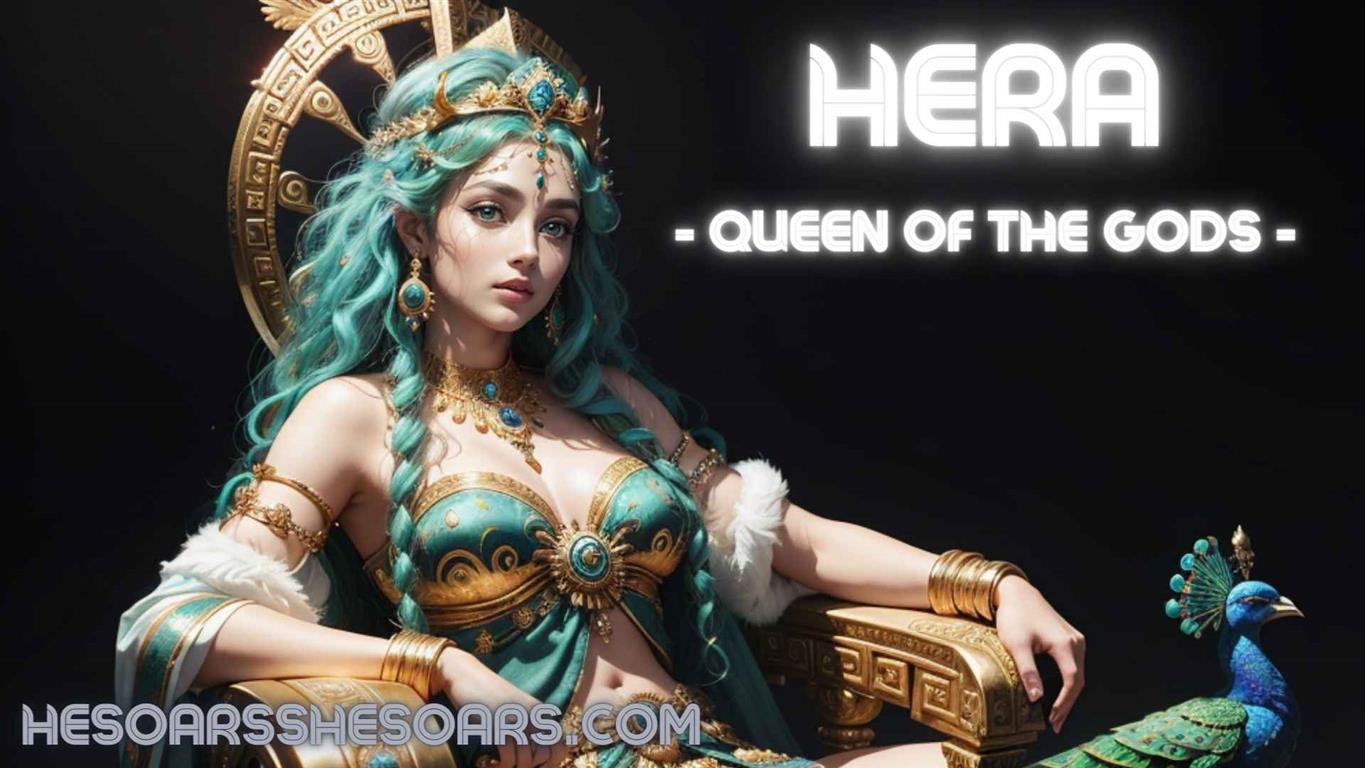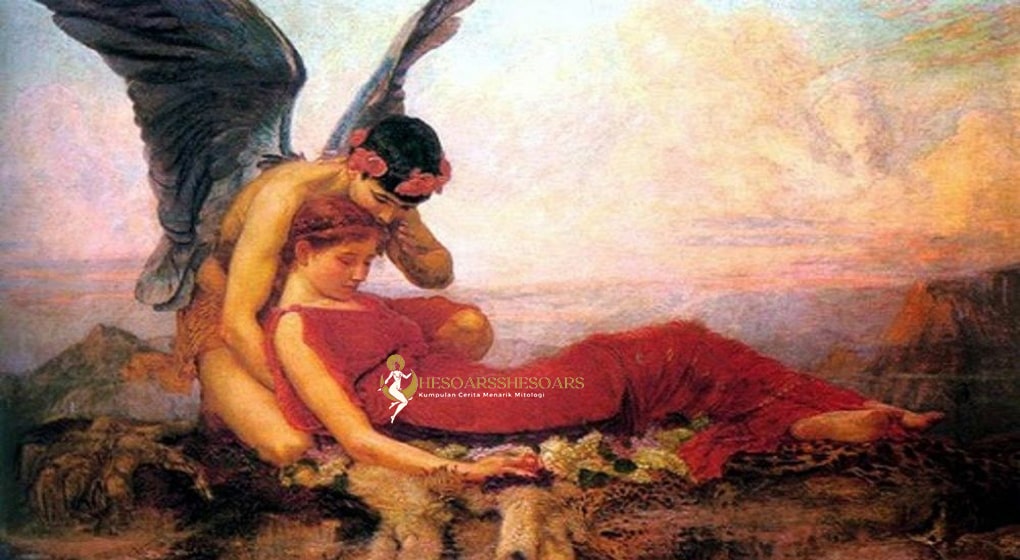Introduction Olympian Gods
Greek mythology, with its tales of valor, love, vengeance, and redemption, has shaped the Western world’s understanding of storytelling, drama, and philosophy. At the heart of these captivating myths stand the Twelve Olympian Gods, powerful deities who ruled Mount Olympus and oversaw the realm of mortals. Let’s delve deep into the mythology and uncover the stories of these twelve divine entities.
1. Zeus Olympian Gods
As the King of the Gods and the ruler of the skies, Zeus wielded the mighty thunderbolt. He was known for his many love affairs and his role in maintaining order in the universe. The god of the sky and thunder, his decisions impacted gods and mortals alike.
2. Hera
Hera, Zeus’s wife, was the Queen of the Gods. As the goddess of marriage, childbirth, and family, her tales often revolve around her jealousy over Zeus’s numerous affairs. Yet, she was also revered as a protector of married women and the familial bond.
3. Poseidon Olympian Gods
God of the sea, storms, and earthquakes, Poseidon’s moods could summon calm breezes or raging tempests. His trident was a symbol of his authority, and his rivalry with Athena over the city of Athens is a famous legend.
4. Demeter
Demeter, the goddess of agriculture, was deeply connected with the cycles of nature. The myth of her daughter, Persephone, taken to the Underworld by Hades, explains the origins of the seasons.
5. Athena
Born from Zeus’s forehead fully armored, Athena was the goddess of wisdom, courage, and warfare. Patron deity of Athens, her wisdom was unparalleled, and she often aided heroes like Odysseus on their quests.
6. Apollo
God of music, arts, prophecy, and the sun, Apollo was a multi-faceted deity. His oracle at Delphi was famed across the ancient world. His twin sister, Artemis, and he had many adventures together.
7. Artemis
Artemis, the moon goddess, was also the deity of the hunt and wilderness. She was a virgin goddess, protective of her freedom and often associated with wild animals.
8. Ares
The god of war, Ares, represented the brutal face of battle. Often depicted in armor, his tales involve battles, conflicts, and his tumultuous affair with Aphrodite.
9. Aphrodite
Born from the foam of the sea, Aphrodite was the goddess of love, beauty, and desire. Her beauty was unrivaled, causing gods and mortals to fall deeply in love or lust with her or because of her.
10. Hephaestus
The god of fire, metalworking, and crafts, Hephaestus was the blacksmith of the gods. he was thrown off Olympus by Hera, only to return as a master craftsman, making weapons for gods and heroes.
11. Hermes
The messenger god, Hermes, was also the deity of trade, thieves, and travelers. Wearing winged sandals, he moved between the world of gods, mortals, and the Underworld, delivering messages and guiding souls.
12. Dionysus Olympian Gods
The god of wine, festivities, and theater, Dionysus was a later addition to the Olympian pantheon. He traveled the world, spreading the joy of wine and merriment, accompanied by maenads and satyrs.
In Conclusion Olympian Gods
The Twelve Olympian Gods are cornerstones of Greek mythology. Their tales, woven into the very fabric of Western culture, offer glimpses into ancient beliefs, human nature, and the intricate relationships between gods and mortals. These gods, with their diverse domains, represent various aspects of the human experience, from love and war to wisdom and festivity. Their enduring legends continue to captivate and inspire generations.




